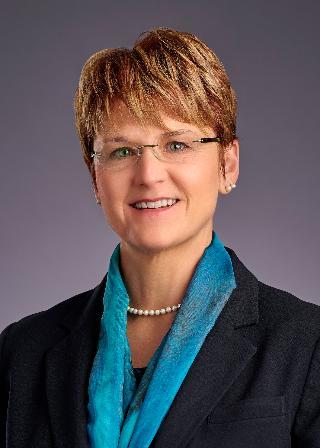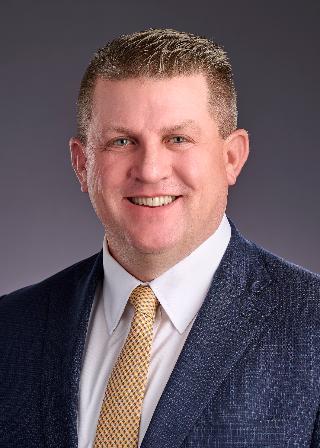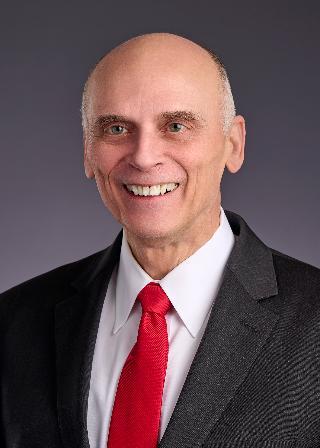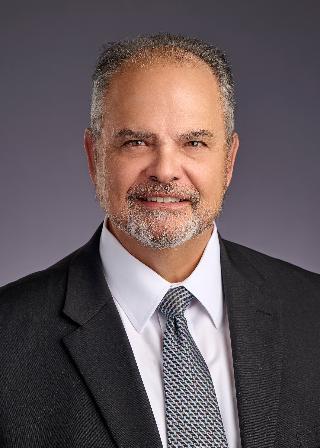| Senator Melissa Wintrow, Co-chair | Representative Douglas T. Pickett, Co-chair |
| Senator C. Scott Grow | Representative Jordan Redman |
| Senator Dave Lent | Representative Ilana Rubel |
| Senator James D. Ruchti | Representative Steve Berch |

Sen. Melissa Wintrow, Co-chair
Boise, ID
Democrat
District 19
Statehouse (208) 332-1339 (Session Only)
MWintrow@senate.idaho.gov

Rep. Douglas T. Pickett, Co-chair
Oakley, ID
Republican
District 27, Seat A
Statehouse (208) 332-1123 (Session Only)
DPickett@house.idaho.gov

Sen. C. Scott Grow
Eagle, ID
Republican
District 14
Statehouse (208) 332-1334 (Session Only)
SGrow@senate.idaho.gov

Rep. Jordan Redman
Coeur d’Alene, ID
Republican
District 3, Seat B
Statehouse (208) 332-1180 (Session Only)
JRedman@house.idaho.gov

Sen. Dave Lent
Idaho Falls, ID
Republican
District 33
Statehouse (208) 332-1313 (Session Only)
DLent@senate.idaho.gov

Rep. Ilana Rubel
Boise, ID
Democrat
District 18, Seat A
Statehouse (208) 332-1034 (Session Only)
IRubel@house.idaho.gov

Sen. James D. Ruchti
Pocatello, ID
Democrat
District 29
Statehouse (208) 332-1406 (Session Only)
JRuchti@senate.idaho.gov

Rep. Steve Berch
Boise, ID
Democrat
District 15, Seat A
Statehouse (208) 332-1039 (Session Only)
SBerch@house.idaho.gov
Meetings with an asterisk indicate a discussion about selecting evaluation topics.
| 2014 | Feb. 13 | Agenda | Minutes |
| Feb. 27 | Agenda | Minutes | |
| Mar. 10* | Agenda | Minutes | |
| Mar. 19 | Agenda | Minutes | |
| Jul. 14 | Agenda | Minutes |
| 2013 | Jan. 8 | Agenda | Minutes |
| Jan. 21 | Agenda | Minutes | |
| Jan. 30 | Agenda | Minutes | |
| Mar. 14* | Agenda | Minutes | |
| Mar. 18 | Agenda | Minutes | |
| Jun. 12 | Agenda | Minutes | |
| Dec. 10 | Agenda | Minutes |
| 2012 | Jan. 16 | Agenda | Minutes |
| Jan. 23 | Agenda | Minutes | |
| Feb. 13 | Agenda | Minutes | |
| Feb. 27* | Agenda | Minutes | |
| Mar. 12* | Agenda | Minutes | |
| Mar. 19 | Agenda | Minutes | |
| Nov. 14 | Agenda | Minutes |
| 2011 | Jan. 31 | Agenda | Minutes |
| Feb. 7* | Agenda | Minutes | |
| Feb. 28 | Agenda | Minutes | |
| Mar. 28 | Agenda | Minutes | |
| Mar. 29 | Agenda | Minutes | |
| Mar. 31* | Agenda | Minutes | |
| Nov. 30 | Agenda | Minutes |
| 2010 | Jan. 26 | Agenda | Minutes |
| Feb. 24 | Agenda | Minutes | |
| Mar. 22* | Agenda | Minutes | |
| Nov. 30 | Agenda | Minutes |
| 2009 | Jan. 14 | Agenda | Minutes |
| Jan. 19 | Agenda | Minutes | |
| Feb. 23 | Agenda | Minutes | |
| Mar. 16* | Agenda | Minutes | |
| Apr. 15* | Agenda | Minutes | |
| May 4* | Agenda | Minutes |
| 2008 | Jan.16 | Agenda | Minutes |
| Mar. 20 | Agenda | Minutes | |
| Mar. 21* | Agenda | Minutes |
| 2007 | Feb. 26 | Agenda | Minutes |
| Mar. 6 | Agenda | Minutes | |
| Mar. 16* | Agenda | Minutes | |
| Mar. 20 | Agenda | Minutes | |
| Jul. 12 | Agenda | Minutes | |
| Dec. 12 | Agenda | Minutes |
| 2006 | Jan. 12 | Agenda | Minutes |
| Feb. 28 | Agenda | Minutes | |
| Mar. 9 | Agenda | Minutes | |
| Mar. 22* | Agenda | Minutes | |
| Aug. 24* | Agenda | Minutes |
| 2005 | Jan. 20 | Agenda | Minutes |
| Feb. 4 | Agenda | Minutes | |
| Mar. 4* | Agenda | Minutes | |
| Oct. 17 | Agenda | Minutes | |
| Dec. 13 | Agenda | Minutes |
| 2004 | Jan. 15, 2004 | Agenda | Minutes |
| Jan. 29, 2004 | Agenda | Minutes | |
| Mar. 2, 2004 | Agenda | Minutes | |
| Mar. 9, 2004 | Agenda | Minutes | |
| Jun. 16, 2004 | Agenda | Minutes | |
| Dec. 3, 2004 | Agenda | Minutes |
| 2003 | Feb. 6, 2003 | Agenda | Minutes |
| Feb. 27, 2003 | Agenda | Minutes | |
| Apr. 3, 2003 | Agenda | Minutes | |
| Apr. 16, 2003 | Agenda | Minutes |
| 2002 | Feb. 4, 2002 | Agenda | Minutes |
| Jun. 12, 2002 | Agenda | Minutes | |
| Nov. 22, 2002 | Agenda | Minutes |
| 2001 | Jan. 16, 2001 | Agenda | Minutes |
| Jan. 18, 2001 | Agenda | Minutes | |
| Mar. 14, 2001 | Agenda | Minutes | |
| May 17, 2001 | Agenda | Minutes | |
| Jun. 21, 2001 | Agenda | Minutes | |
| Nov. 6, 2001 | Agenda | Minutes |
| 2000 | Jan. 27, 2000 | Agenda | Minutes |
| Feb. 10, 2000 | Agenda | Minutes | |
| Feb. 18, 2000 | Agenda | Minutes | |
| Mar. 1, 2000 | Agenda | Minutes | |
| Mar. 22, 2000 | Agenda | Minutes | |
| Jun. 12, 2000 | Agenda | Minutes | |
| Sep. 29, 2000 | Agenda | Minutes | |
| Nov. 27, 2000 | Agenda | Minutes | |
| Nov. 28, 2000 | Agenda | Minutes |
| 1999 | Feb. 4 | Agenda | Minutes |
| Jun. 21 | Agenda | Minutes | |
| Oct. 25 | Agenda | Minutes |
| 1998 | Jan. 29 | Agenda | Minutes |
| Feb. 5 | Agenda | Minutes | |
| Mar. 16 | Agenda | Minutes | |
| Jun. 12 | Agenda | Minutes | |
| Oct. 9 | Agenda | Minutes |
| 1997 | Jan. 21 | Agenda | Minutes |
| May. 15 | Agenda | Minutes | |
| Jul. 23 | Agenda | Minutes | |
| Dec. 16 | Agenda | Minutes |
| 1996 | Feb. 15 | Agenda | Minutes |
| May. 14 | Agenda | Minutes | |
| Jul. 10 | Agenda | Minutes | |
| Oct. 16 | Agenda | Minutes | |
| Dec. 6 | Agenda | Minutes |
| 1995 | Jan. 6 | Agenda | Minutes |
| Jan. 31 | Agenda | Minutes | |
| Mar. 15 | Agenda | Minutes | |
| Apr. 27 | Agenda | Minutes | |
| Jun. 19 | Agenda | Minutes | |
| Aug. 28 | Agenda | Minutes | |
| Nov. 20 | Agenda | Minutes |
| 1994 | Jan. 7 | Agenda | Minutes |
| Oct. 5 | Agenda | Minutes |
 |
Idaho Code instructs the selection and operation of the Joint Legislative Oversight Committee and outlines an independent process for conducting evaluation studies. | |
| § 67-457 | Joint Legislative Oversight Committee | |
| § 67-458 | Definitions | |
| § 67-459 | Term of membership and organization of committee | |
| § 67-460 | Powers of committee | |
| § 67-461 | Conduct and issue performance evaluation reports | |
| § 67-462 | Recording testimony under oath | |
| § 67-463 | Assistance | |
| § 67-464 | Quorum | |
The purpose of these rules is twofold. First, the rules provide a basis for the operations of the Joint Legislative Oversight Committee and the Office of Performance Evaluations in selecting, conducting, and reporting performance evaluations. Second, the rules serve to inform members of the Legislature, the evaluated agencies, and the general public of the procedures that will be followed in conducting performance evaluations.
Legislative Council, pursuant to statute, shall appoint the members of the Joint Legislative Oversight Committee. Membership on the committee shall be evenly divided between the Senate and House of Representatives, and evenly divided between the two largest political parties represented in the Legislature. Legislative Council shall appoint the cochairs of the committee, who shall be from different houses of the Legislature and from different political parties.
The Joint Legislative Oversight Committee shall adopt Committee Rules at its first meeting after the commencement of the session of a new Legislature. These rules shall remain in effect during the biennium. Any change to the rules shall require an affirmative vote by a majority of the members of the committee.
Unless the Joint Legislative Oversight Committee adopts specific rules, the Joint Rules of the Senate and House of Representatives shall govern the proceedings in the committee, or, in the absence of Joint Rules, Senate Rules shall apply. In all cases not otherwise provided for, and in which they are not inconsistent with Committee Rules, Joint Rules, or Senate Rules, the general rules of parliamentary practice and procedure as set forth in Mason’s Manual of Legislative Procedure shall govern the proceedings of the committee.
Meetings of the Joint Legislative Oversight Committee shall be held at such times as the cochairs deem necessary.
A written summary of the proceedings shall be kept of each meeting of the Joint Legislative Oversight Committee. Upon correction and approval by the committee, all minutes shall be filed as public records in the Office of Performance Evaluations and the Legislative Library.
The Joint Legislative Oversight Committee shall not transact business except upon a quorum being present when the committee convenes, nor thereafter if any member objects to the lack of a quorum. A quorum shall consist of a majority of the committee membership.
The Joint Legislative Oversight Committee, upon a two-thirds (2/3) vote, may meet in executive session to consider any matter provided for in section 67-461(6), Idaho Code. A roll call vote shall be taken on any motion to meet in executive session.
At the release of a final performance evaluation report, the Joint Legislative Oversight Committee will not receive oral or written testimony from sources other than staff of the Office of Performance Evaluations, agency representatives, and the Office of the Governor, unless an invitation to present such testimony has been extended by the cochairs of the committee and such invitation has been approved or ratified by a majority vote of the committee.
The Joint Legislative Oversight Committee may take testimony under oath as provided in section 67-462, Idaho Code.
The Joint Legislative Oversight Committee may issue subpoenas upon the signature of either of the cochair, as provided in section 67-460(7), Idaho Code.
Upon the Joint Legislative Oversight Committee’s selection of a topic for evaluation and review of the project scope, the director of Legislative Performance Evaluations shall send a letter to the director, administrator, governing body, or chief executive of any agency to be evaluated. The letter shall inform the recipients of the committee’s selection and shall briefly explain the purpose and scope of the selected evaluation topic.
Following the Joint Legislative Oversight Committee’s selection of the topics for evaluation, the director of Legislative Performance Evaluations shall schedule an opening conference with representatives of the agency to be evaluated, for the purpose of describing the scope of the evaluation, the proposed schedule, and the data that will be needed. Members of the Joint Legislative Oversight Committee or any other member of the Legislature shall not attend such conferences.
After the presentation of a final performance evaluation report to the Joint Legislative Oversight Committee, a representative from each agency evaluated in the report, and the Governor or his or her representative, shall have the opportunity to respond.
After their release, final performance evaluation reports shall be made available by the director of Legislative Performance Evaluations to the state library, the news media, and representatives of the evaluated agency. No later than one day after their release, reports will be made available to all members of the Legislature, the public, and other parties.
If data supplied by an individual are necessary to initiate, continue, or complete a performance evaluation, the director of Legislative Performance Evaluations may, by written memorandum to the file, provide for the confidentiality of an individual’s identity. Such memorandum shall protect the identity of the individual from disclosure under chapter 3, title 9, Idaho Code.
Before a final performance evaluation report becomes public, the Joint Legislative Oversight Committee will release the report by consent from a majority of the committee members (including consent from both cochairs) or by vote on a motion. Consent or adoption of a motion to receive shall constitute the completion of performance evaluation procedures regarding the report.
Each report shall be made available to the public and the media following the passage of a motion to receive the report at a meeting of the Joint Legislative Oversight Committee.
All findings and recommendations in a final performance evaluation report shall represent the work of the Office of Performance Evaluations only, and shall not be considered the views or recommendations of the Joint Legislative Oversight Committee. A vote by the committee to release a final report shall not be construed as an endorsement of the findings or recommendations therein but shall indicate the Office of Performance Evaluations has completed the evaluation and the report is ready for public distribution.
After the release of a final performance evaluation report, the Joint Legislative Oversight Committee may adopt or develop recommendations for proposed legislation. The cochairs or their designees in their respective legislative bodies shall introduce any legislation proposed by the committee. The cochairs may include in the bill an endorsement identifying the Joint Legislative Oversight Committee as the party requesting introduction.
The Joint Legislative Oversight Committee may wish to take additional actions after the release of a final performance evaluation report.